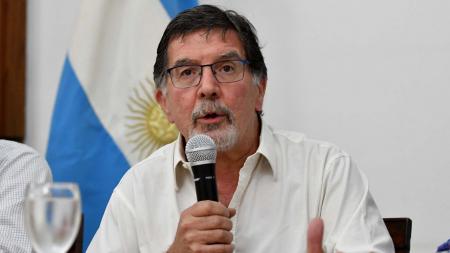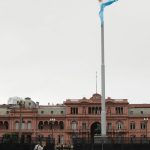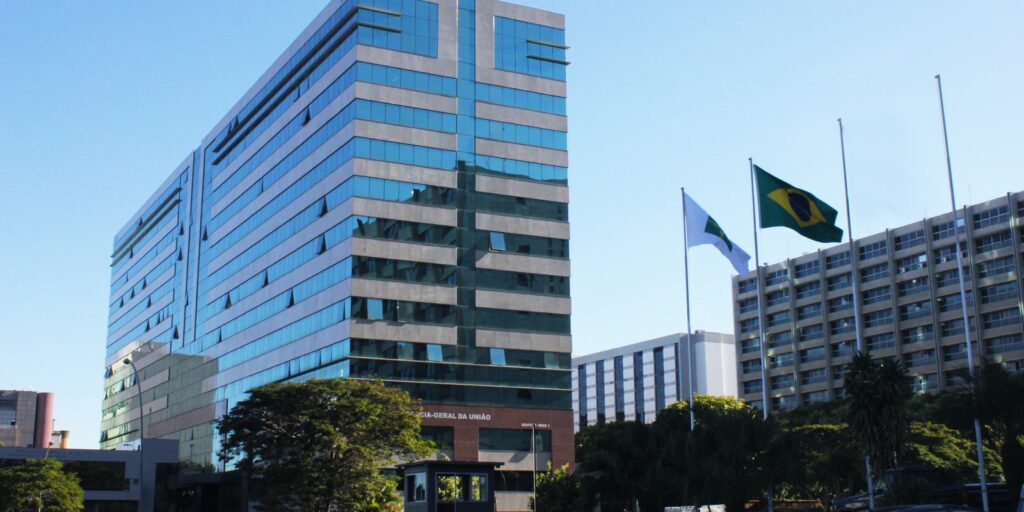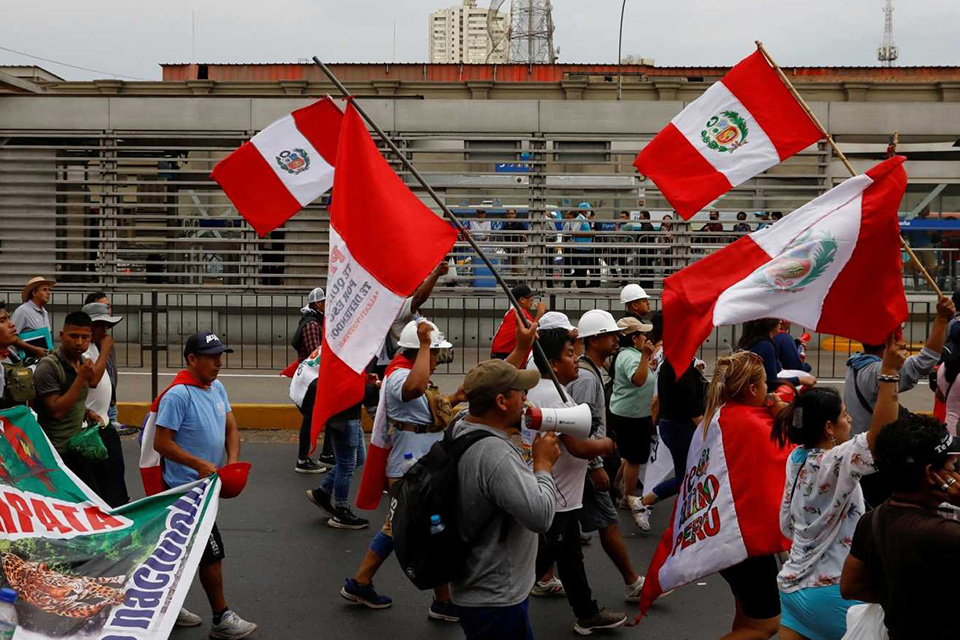The general director of Culture and Education of the province of Buenos Aires, Alberto Sileoniassured this Thursday that in the pro-government initiative that proposes to update secondary education in Buenos Aires “there is no facility”, nor is it sought that “all the boys pass the year”, and stressed that “it is shocking that those who did nothing in education, we prescribe the path to follow”.
“A good part of the opposition did not understand what we are proposing and the turn of this discussion that ends up involved in the electoral campaign hurts,” Sileoni said at a press conference, adding: “We started a discussion on institutional channels, in the General Education Council, and we ended it on television channels “.
The official stated that “the matrix of secondary education is a subject of great complexity, a subject that requires complex arguments and this did not happen.”
“There is no ease, there is no flexibilitywe do not want all the children to pass the year, it is not true that we propose that, much less that they are measures that look for ignorant people,” added the Buenos Aires official.

In this way, he ruled out that the Buenos Aires General Council of Culture and Education is going to apply in the school year, which begins on March 1, a new school promotion scheme, which would provide that Buenos Aires secondary students can pass the year despite of having three or more previous subjects, as it transpired.
In various media it was published that this Thursday afternoon, the Council, in a session called for 4:00 p.m., would approve the measure to make the conditions to promote the year more flexible, which, according to sources from the Executive Branch, was postponed.
Accompanied by Claudia Brachiundersecretary of education, Pablo Urquizachief of staff and Gustavo Gallidirector of Secondary Education, Sileoni explained, after finishing the first session of the Buenos Aires General Education Council, that the Government is analyzing an update of the secondary education system, which contemplates, among other issues, a new school promotion scheme, but stressed that it is not will be done this year.
“We are discussing in the abstract because nothing that is being discussed was going to be implemented now, but with time,” he assured and added: “Repetition ended up being the axis when it is not the central issue, put a little more energy into thought” , raised Sileoni, referring to representatives of Together for Change who questioned moving forward with a modification in the secondary school.
“There is no ease, there is no flexibility, we do not want all the boys to pass the year, it is not true that we propose that.”Alberto Sileoni
In this sense, he pointed out that “repetition has been in the educational system for 110 years” and that even though “the world has changed since 1910 and we cannot discuss repetition.”
As he explained, Of 100 boys who attend, 60 finish on time, another 20 take a longer time to graduate and 20 drop out.
“We have problems in terms of learning. The one who repeats once, dresses as a hero and flies, but if he repeats it again, he leaves school; And the ones who drop out are the kids who don’t have a state to accompany them,” he said.
“We believe that the secondary school must be modified and we took a path and that path is being discussed with us by those who governed from 2016 to 2019 and did not take any path,” said Sileoni and recalled that during the presidencies of Néstor Kirchner and Cristina Fernández de Kirchner It advanced with changes in the education law, compulsory secondary education was imposed and GDP dedicated to education went from 3 to 6 points.

“What positive mark did macrismo and vidalismo leave on education?”the minister wondered and added: “It is shocking that those who did nothing in education, prescribe the path to follow.”
The official assured that the opposition representatives received the proposal a long time ago, despite the fact that the JxC leadership maintained that it arrived last week; and that although they were offered time to evaluate it, he analyzed that “behind the argument that they need more time, there is the argument that we are going to oppose it.”
“There is a clear diagnosis that indicates that the secondary school must be reformulated and we chose this path. The path can be discussed, but it cannot be argued that the secondary school with the current matrix is not responding to the needs of the students,” said Sileoni and completed: “We seek rigor, work, effort, and not leave the students alone”
According to sources from the educational portfolio, the measure in which the Province works aims to ensure that students remain in school and do not abandon their studies if they have to repeat the course, giving them a longer term to be able to take the subjects that they owe for years. previous.
In this sense, Sileoni warned that “there is a consensus that those who repeat do not learn more in the year they repeat. We have to make a different promotion regime, it is under study“.
Until now, students from the province of Buenos Aires can pass the year if they have up to two previous subjects, and according to official figures, of every 10 students, 6 finish on time and in the proper way, 2 do so later and 2 do not finish. .
With the reform of the academic regime under analysis, students could promote the year despite having subjects pending approval and take them at another time under an order of knowledge areas.
If the modification is approved, the subjects will be organized into eight groups: each one will be made up of one or more subjects (for example, one group will be social sciences, history and geography, another will be biology, physics and chemistry).
Thus, within each grouping, up to two subjects could be disapproved, and with the third pending subject “the compulsory appeal is established only for that subject from the previous year.”
“There is a general consensus that secondary school must change and improve so that students learn more and better, and conclude it in a timely manner. There is also a general consensus that repetition does not improve learning,” they explained from Education.
In fact, they indicated that in countries like Norway, Japan and Uruguay there is no repetition, and that in Europe there is a very low rate of repetition because they apply anticipatory methods, such as subject recourse.
In Finland and France it is repeated exceptionally, as defined by the teaching teams; and in provinces such as Chaco and Río Negro the materials can be appealed, they added.
On the other hand, they indicated that, since last year, in the city of Buenos Aires the year can be promoted with more than 2 previous subjects.
“In no way, as they say, it is an easier system. No one who does not pass each and every one of the subjects will have the secondary title (if the reform is completed),” said Sileoni.
In this sense, from the Executive Branch it was indicated that the new regime seeks to organize “intensification instances aimed at students not accumulating many subjects pending approval.”
It would be a period of 30 days per quarter destined to recover the knowledge and contents not reached and those in which they have more difficulties.
For this, the province of Buenos Aires would invest some 8,000 million pesos in positions and teaching modules so that teachers accompany students in the task of recovering the learning pending approval.
In fact, the idea under study is that some schools will work to intensify teaching in the evening shift and on Saturdays, and others in reverse.


















